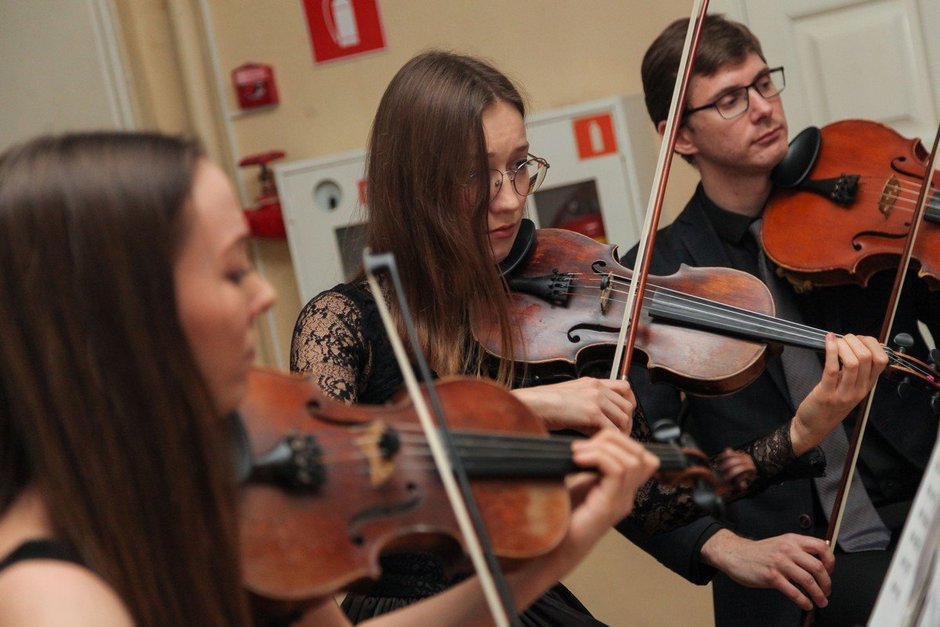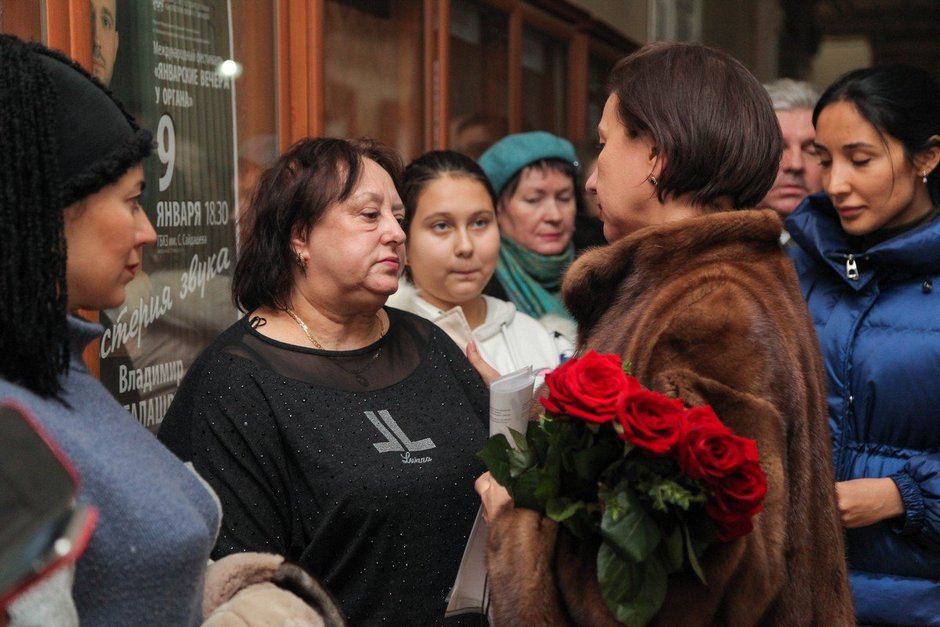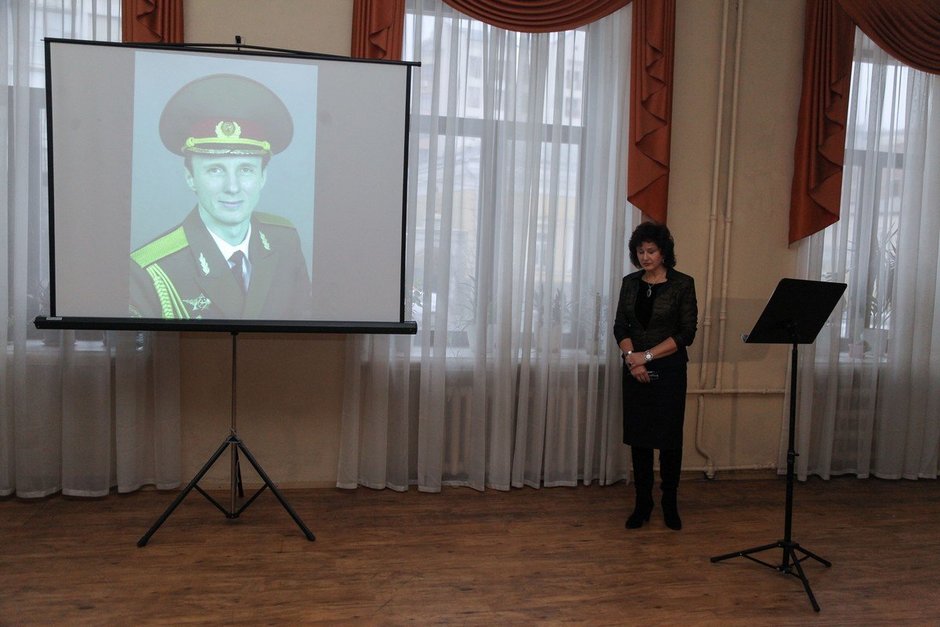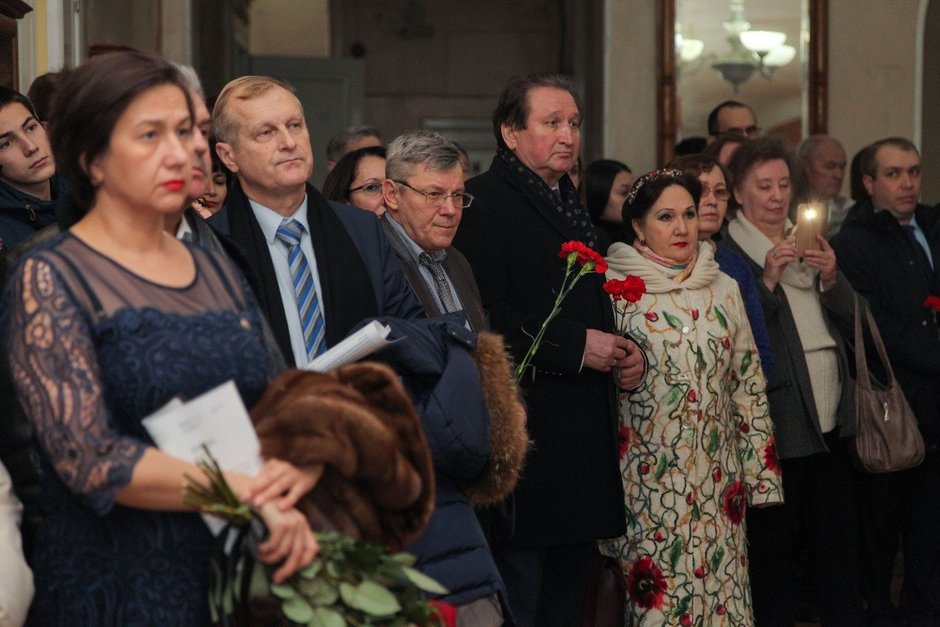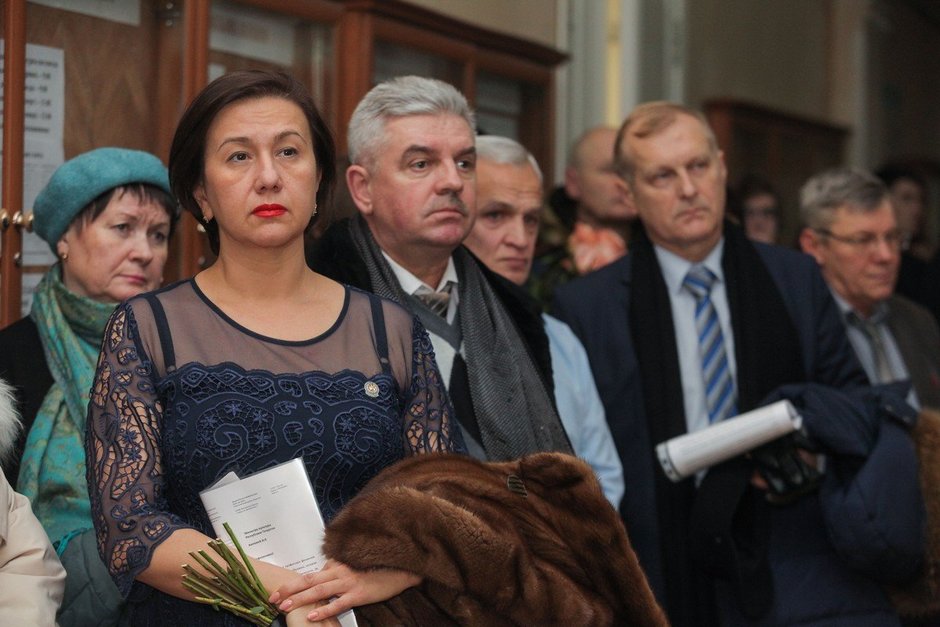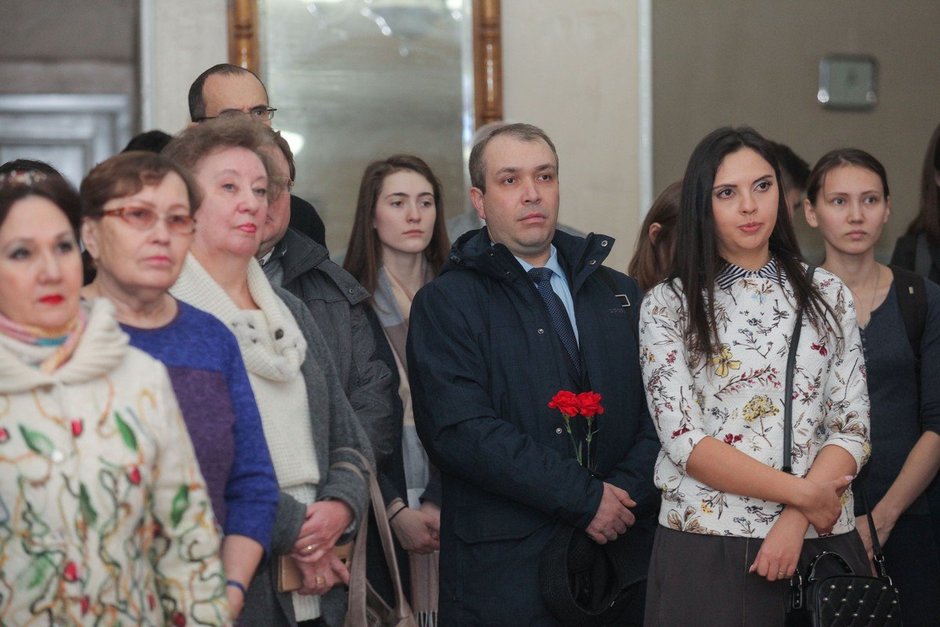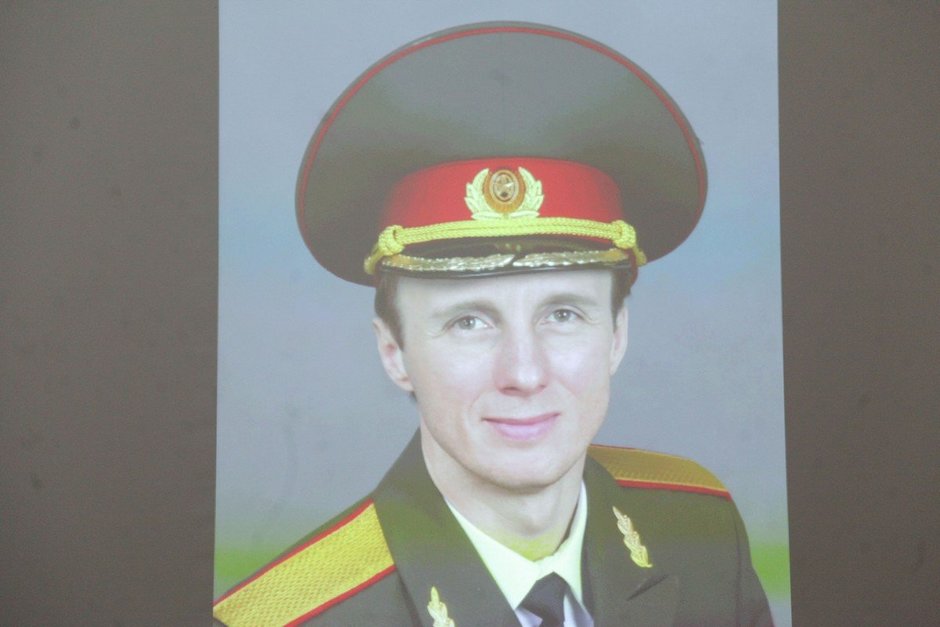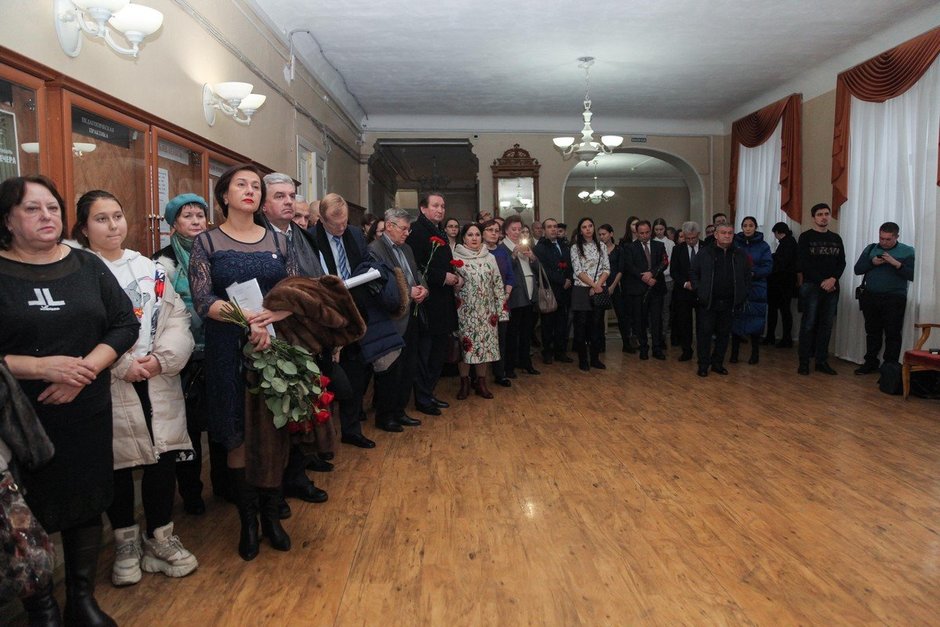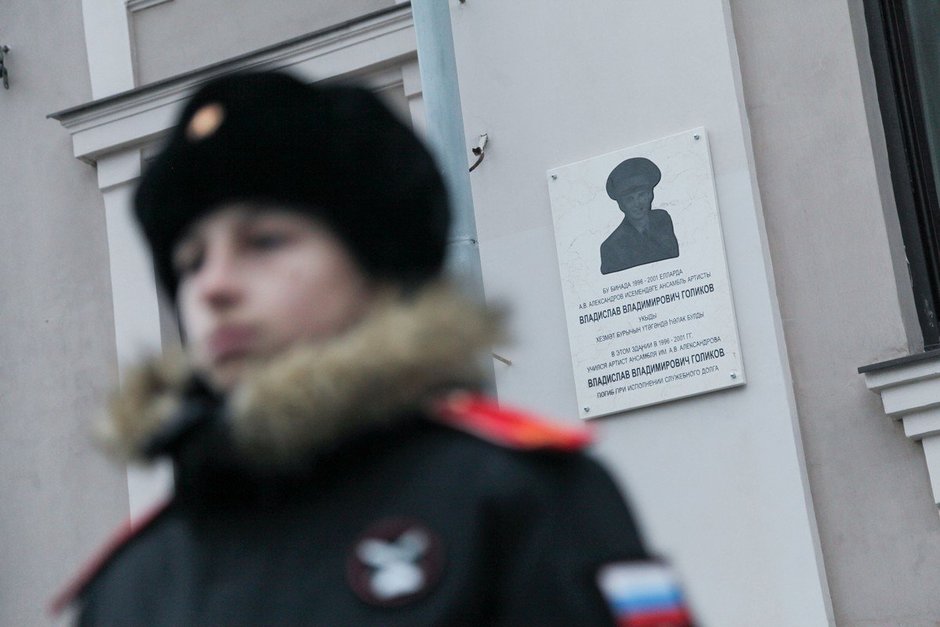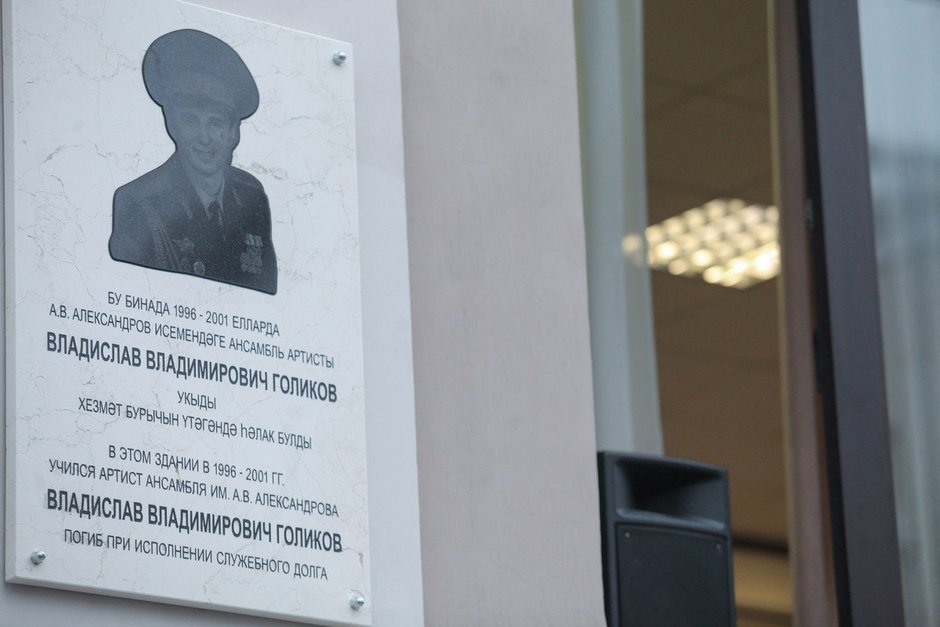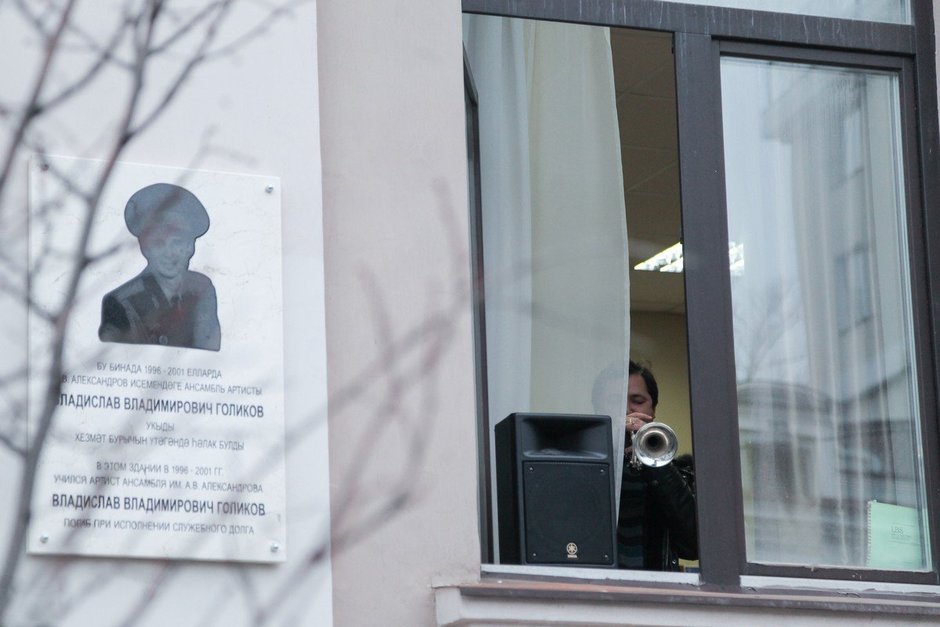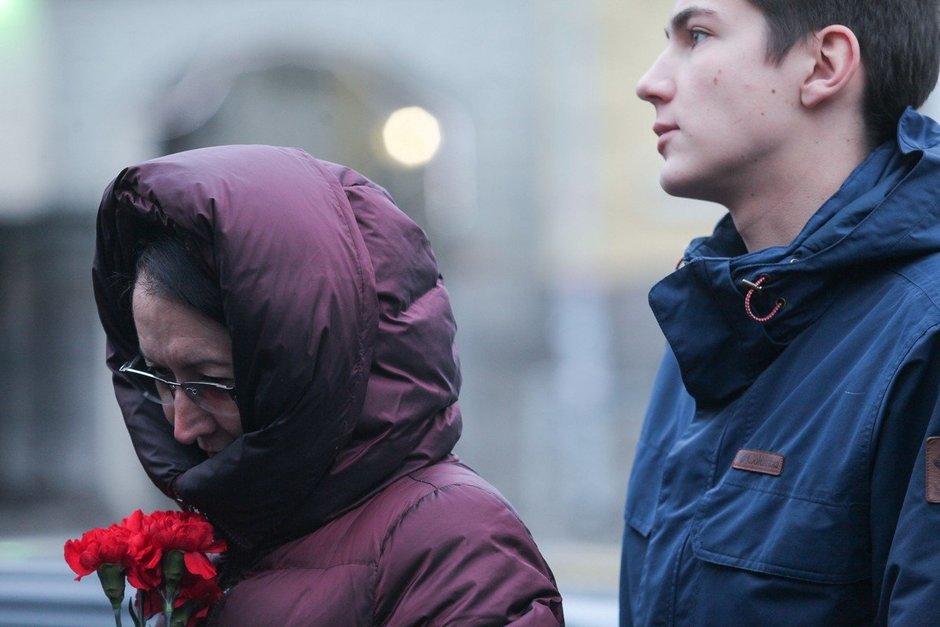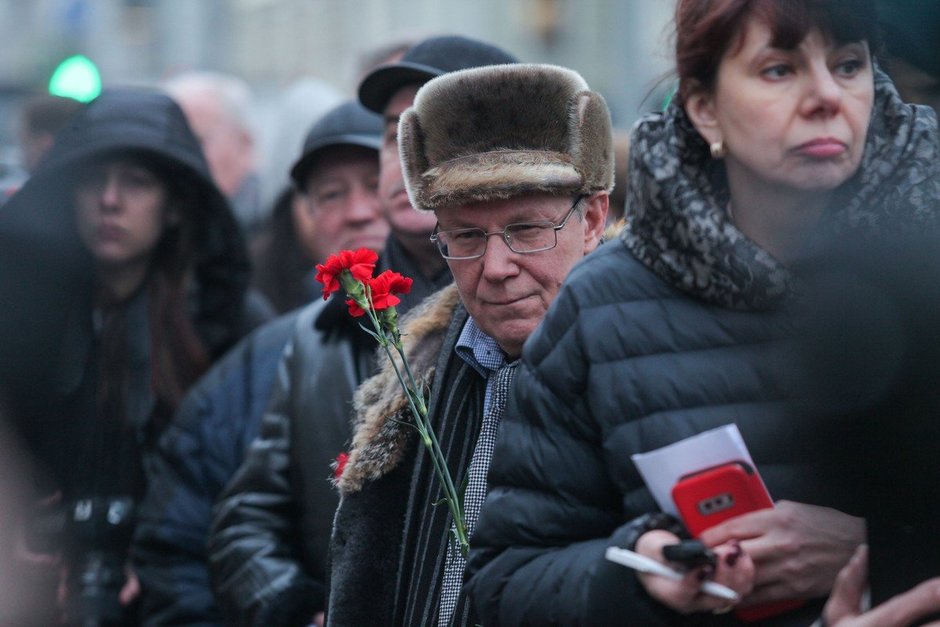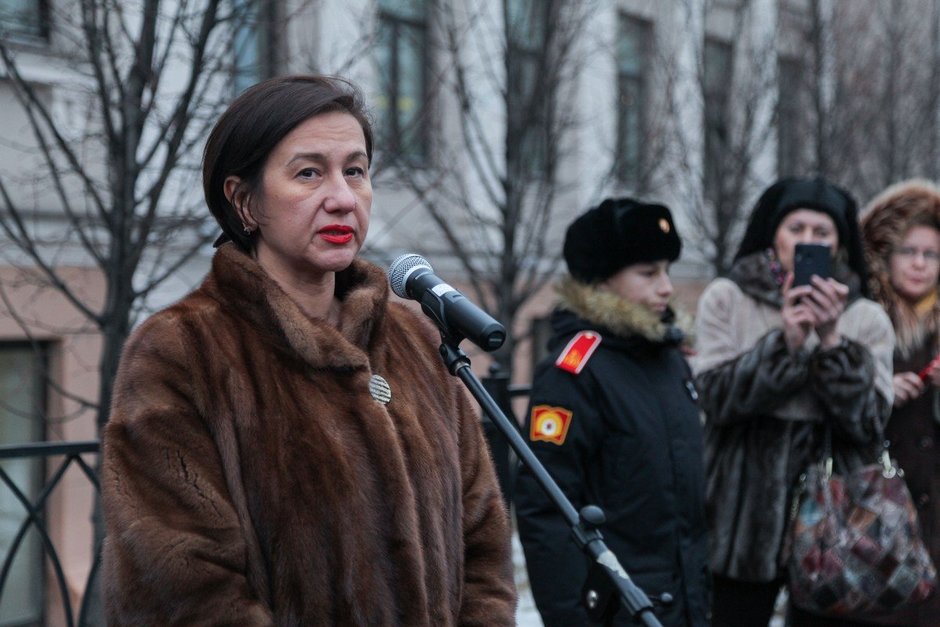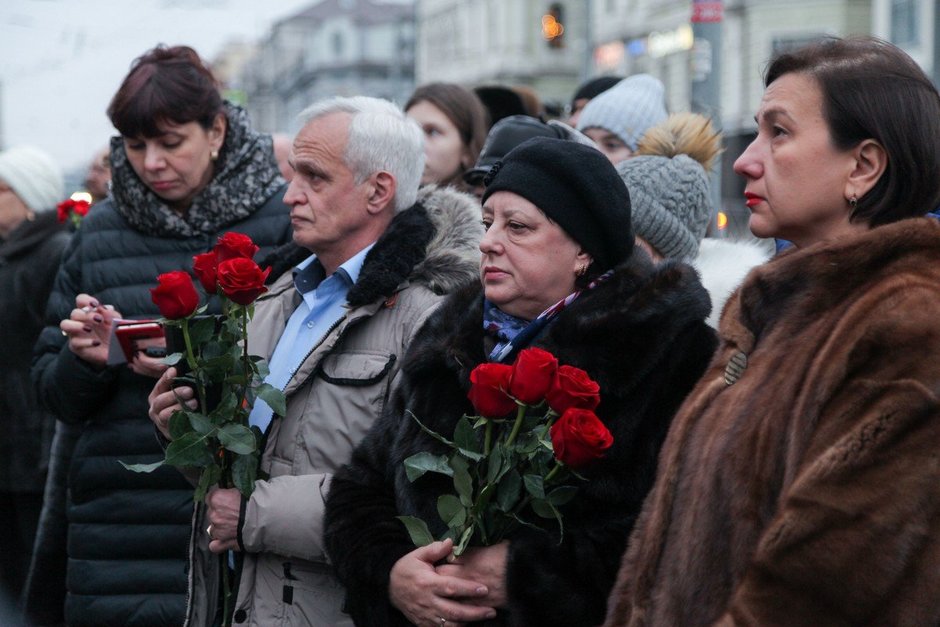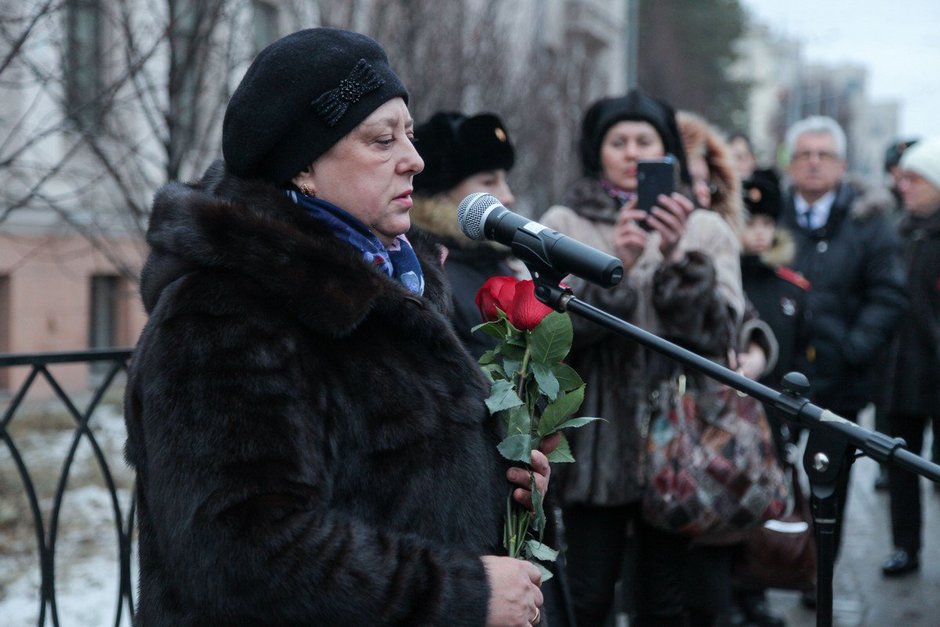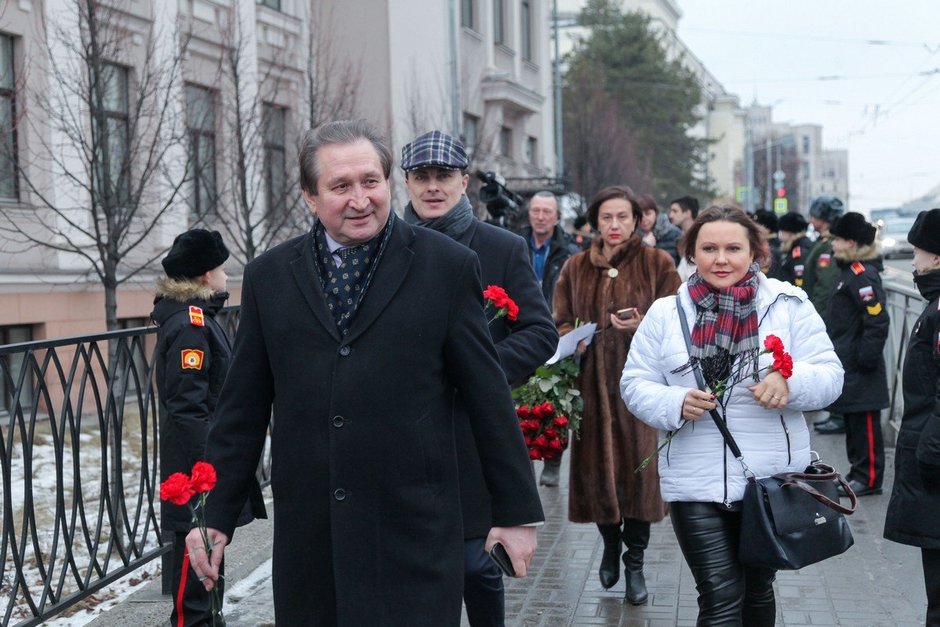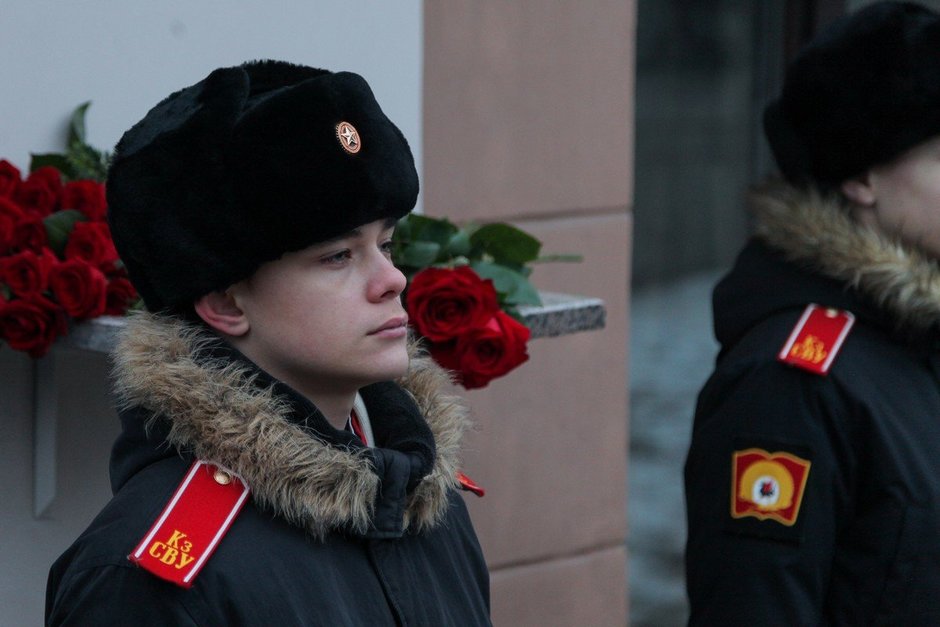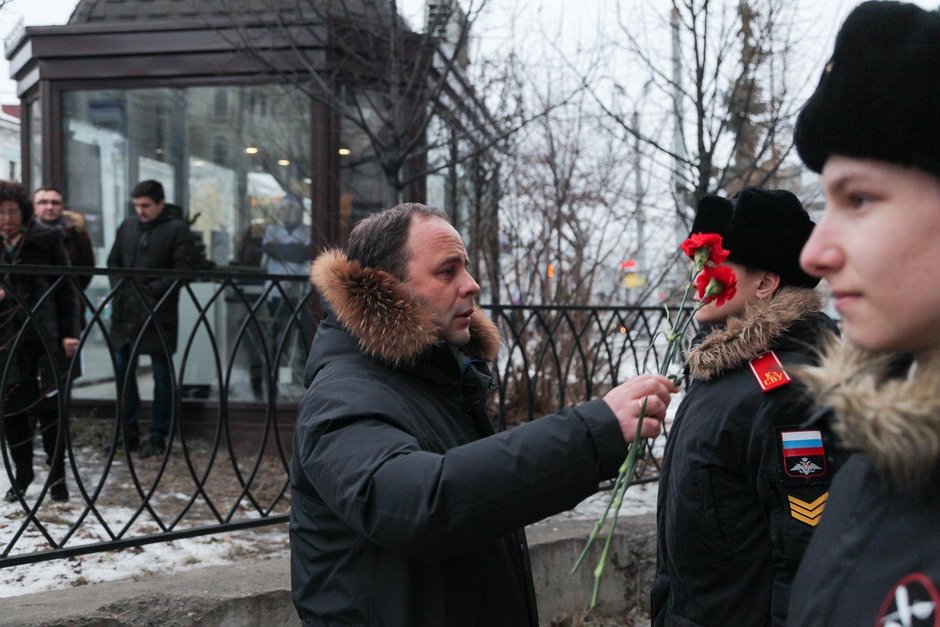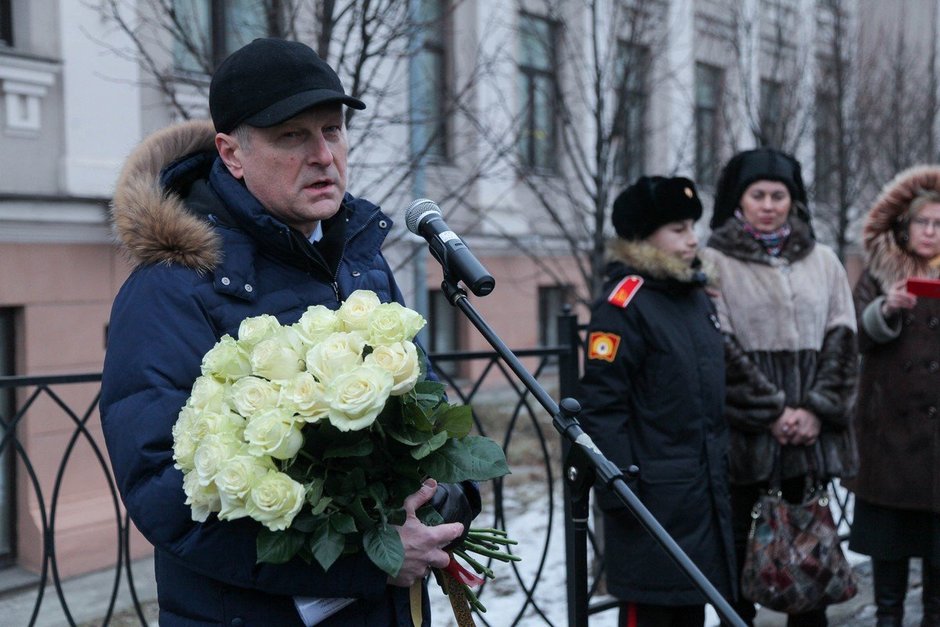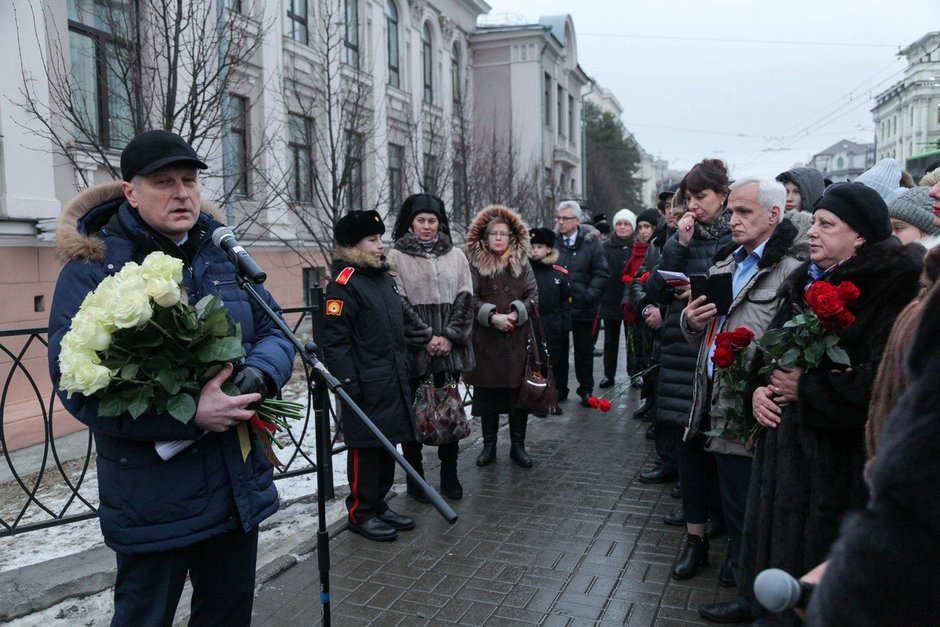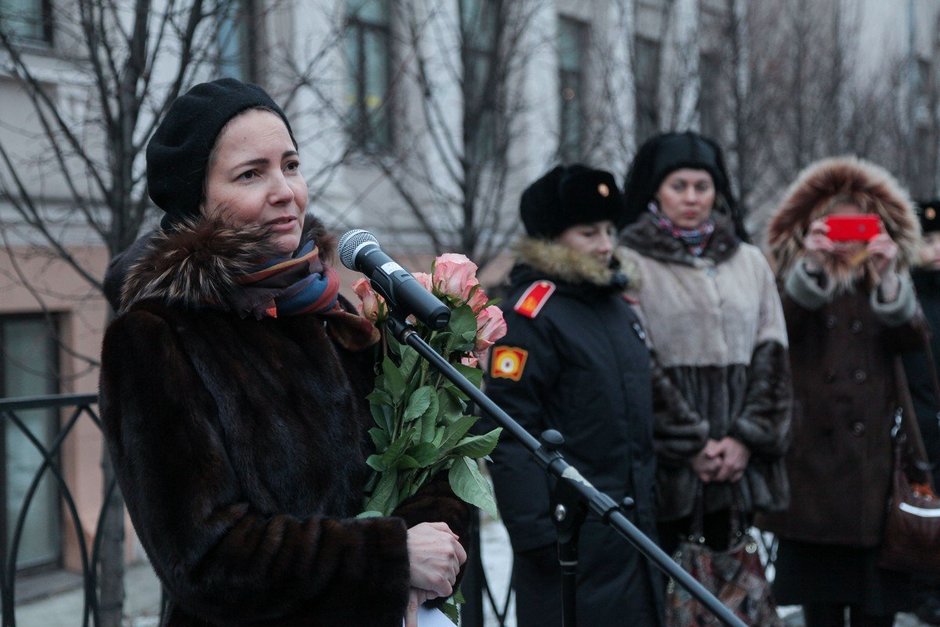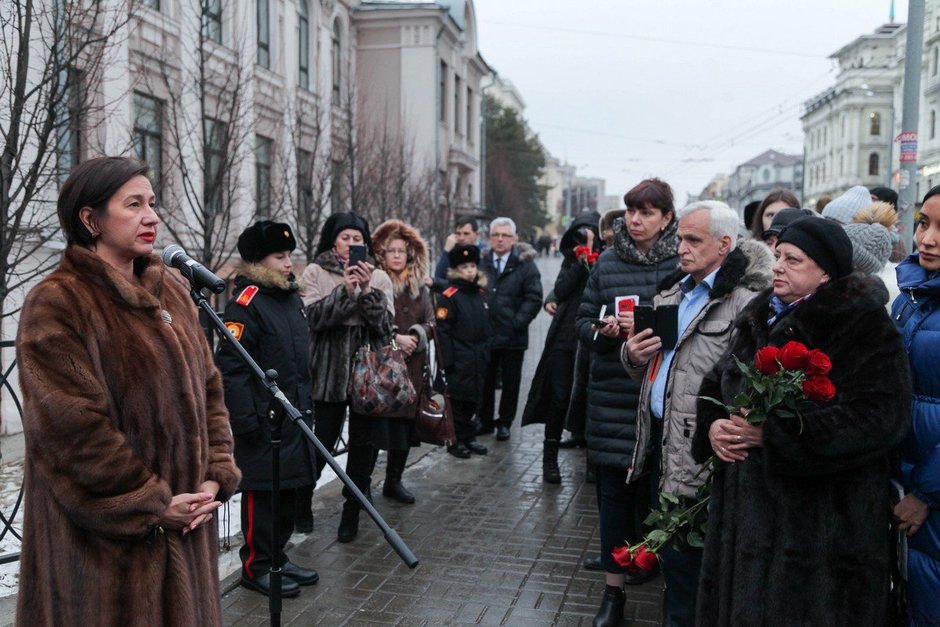“The voice that brings joy”: interrupted flight of Vladislav Golikov
3 years after the TU-154 crash near Sochi, Russia pays tribute to the victims of the tragedy, including those who come from Kazan
Russia is remembering the victims of the plane crash over the Black Sea near Sochi: on December 25, 2016, 92 people were killed in the crash of the Defense Ministry plane flying to Syria, including well-known philanthropist and blogger Doctor Lisa. The main composition of the song and dance ensemble of the Russian Army named after A.V. Alexandrov, who was to give a concert at Khmeimim air base, was on board. Among the dead there were two natives of Kazan: 22-year-old ballerina Ralina Gilmanova and 43-year-old leading soloist Vladislav Golikov. People who knew him closely shared their memories of the performer with Realnoe Vremya.
The grand opening ceremony of the memorial plaque to Vladislav Golikov took place on Monday. The unforgettable voice of the tenor, who had toured almost the entire world by the age of 43, sounded on it again. His range allowed him to perform opera arias, folk songs, and works of Soviet composers.
“He's a tremendously talented man. He always remembered his alma mater, always stayed in touch with his school, the conservatory. With his talent, he served his people and died when performing his duty," Minister of Culture of the Republic of Tatarstan Irada Ayupova said at the ceremony.
He had a premonition of his death
The singer's mother, Lyudmila Pankratova, in a conversation with the correspondent of Realnoe Vremya, remembered that he had been passionate about music since childhood. From the age of three, he wanted to play the piano, but his parents thought it was a childish prank. “We somehow did not recognize his talent in time, so he started his musical life later than usual. But still, he managed to do everything," shared Lyudmila Anatolyevna.
According to her, the son studied with great desire, graduated from the music school early, music school, pedagogical Institute and only then entered the conservatory. He dreamed to work at the Musa Dzhalil Opera House. “That's what he said: my life in Kazan is a conservatory and an opera house," the tenor's mother recalls.
But Golikov did not have a chance to perform on the Kazan stage — after the audition, the people's artist of the USSR, opera singer, actress, and theater director Galina Vishnevskaya, who came to Kazan, took him with her to Moscow.
“She was a great help: she took him in her opera school, where he studied for two years, provided him with housing, treated him as her own son — she liked him very much. The Moscow stage of his life began, and he married there. He took his first steps in the profession at the Natalia Sats Children's Musical Theatre, where he worked, performing in parallel with the ensemble. They just did not allow him to let go from there, he was often invited. He did not refuse, and it turned out that he did not leave it," says Pankratova.
At the end of December 2016, the singer with the ensemble was supposed to fly with concerts to China, but the trip was canceled at the last moment. It so happened that my mother spent the whole month visiting her son in the capital.
“He came home and said he was going to Syria. “There's a war raging here!” we exclaimed. On December 23, I left Moscow. He didn't let me go for a month, as if he felt that this was our last meeting. When he saw me off at the station — he couldn't leave for a long time. It was late, I was hurrying him — I was telling that the subway was going to close soon, but he did not want to say goodbye. And then something stirred in my heart: what a farewell! I looked at him — and his eyes were full of tears. 'Son, what's up with you? The New Year is soon, come to me in Kazan!' I tell him. He is silent. He didn't answer any more questions.
He leaves behind his daughter, now 13 years old. “He was a good family man. He raised a wonderful daughter. The girl honours her father, is proud of him. But she did not follow in his footsteps, she chose painting," says Lyudmila Anatolyevna. She is proud that she raised a worthy son — good, honest, hard-working and very talented.
According to her, on the three-year anniversary, the family will gather in Moscow to remember their son, husband, and father. Golikov is buried at the military cemetery in Mytishchi In memory of the victims of the plane crash, the memorial plaque was opened on the building of the ensemble, and a stele with the names of all the victims was installed in Sochi.
He was wildly popular in Spain
Oleg Lukinykh, the deputy head of the double red banner song and dance ensemble named after A.V. Alexandrov, said that Golikov quickly got on well with the team, which he joined in 2013:
“He was already an established artist, having behind him the Kazan Conservatory, the Centre for Opera Singing of Galina Vishnevskaya, experience in Moscow theatres, where he received the highest qualification 'leading master of the stage'. The huge repertoire that he had allowed him from the first days to participate in concerts of the ensemble. By the established tradition, the ensemble always performs works in the native language of the audience. Vladislav performed songs in English, Italian, Spanish, Portuguese, Slovak, and other languages on foreign tours. And his performances were accompanied by enthusiastic applause from the audience.
According to Lukinykh, the ensemble often performed in military collectives, hospitals, military educational institutions, and Vladislav always took an active part in this. The performer had many departmental awards, there was a Letter of Thanks from the President of Russia. In the team, he was loved and respected for his talent, the highest level of performance skills, hard work, responsibility, conscientious attitude to work, the deputy head of the ensemble continues. At the same time, Golikov was a very modest man, he hadn't a drop of arrogance in him, but there was sincerity, devotion to his profession.
The press secretary of the ensemble, Valentina Maksimova, believes that the singer has managed to do a lot in his short life. “In his life, there were many victories and triumphs. And how much love and happiness he gave to many in this world. Hardly anyone from relatives, friends, neighbours in the distant '70s could suggest that a small, modest, quiet boy from the family of a railway engineer would reach such creative heights, perform on the best stages of the country and the world! He had many fans abroad," Maksimova said. She remembered how she had witnessed his amazing performances, at the final chords of which the audience stood up in a rush and applauded enthusiastically:
“In the last days of his life, Vladislav received a call from the Spanish Embassy, they invited him to a reception that was arranged specifically in his honour. It turned out that a video of his performance in Spanish, posted on YouTube, gained more than a million views in a short time. At the reception, the adviser to the Spanish Ambassador to Russia said that in Aragon he was so popular that if he had come there he would have been recognized in the streets. He was happy that his work found such a response from people. He always said that his main goal was to bring joy to people.”
Golikov gave his last performance on his birthday — November 23 — at the children's musical theatre named after N.I. Sats. Until now, they remember that everyone was impressed by Vladislav's performance and then noted how greatly he had grown in terms of creativity.
“We still have Vladislav, and music starts again”
After the tragedy with the place, many letters came, testifying to the love of Golikov's work. At the opening ceremony of the memorial plaque at the Kazan Conservatory, an excerpt from one of them, sent from Belgium, was read out:
“At a difficult moment in my life, I heard Vladislav singing. I heard such a beautiful, nuanced joy in that voice, and when I looked up, I saw a man with serene and pure eyes. And the joy that was reflected in his voice was all over his face. Then I said to myself: 'There is a lot of sadness in this life, look, joy still spontaneously blooms on the faces of some people. They are left by God to draw us after them. Us, others, into the light!”
The admirer wrote that since then she had listened and seen Vladislav every time there was an opportunity: at the ensemble's concerts in Europe, as well as in various recordings, and always with the same wonder why this voice brings so much joy. According to the author of the letter, the same emotions and feelings were in her children when they listened to Golikov's singing: “Oh, mother, how amazing he is!” I wondered what invisible threads were woven between people in this world — even from afar, without even knowing each other. Vladislav's voice vibrated in our house: strong, warm. In the evenings, the children sang, danced, and whirled to his singing. My boy was laughing with tears in his eyes, and I asked him: 'What's going on with you?' He answered: 'I don't know, but it's so joyful, it makes me happy.'
After learning about the death of the favourite artist, the family was worried for a long time, the woman and her children felt empty and spent days praying for Vladislav Golikov and each of the victims of the Alexander ensemble: 'Joy is dead,' I told myself. But we continued to listen to Vladislav. We still do this very often. We realized that through tears, joy continues to live so full and bright, so pure and high, as in the temple. Today, when it is hard and sad for me, children come to me and say: 'Don't be sad, mother. 'We still have Vladislav, and music starts again.”
